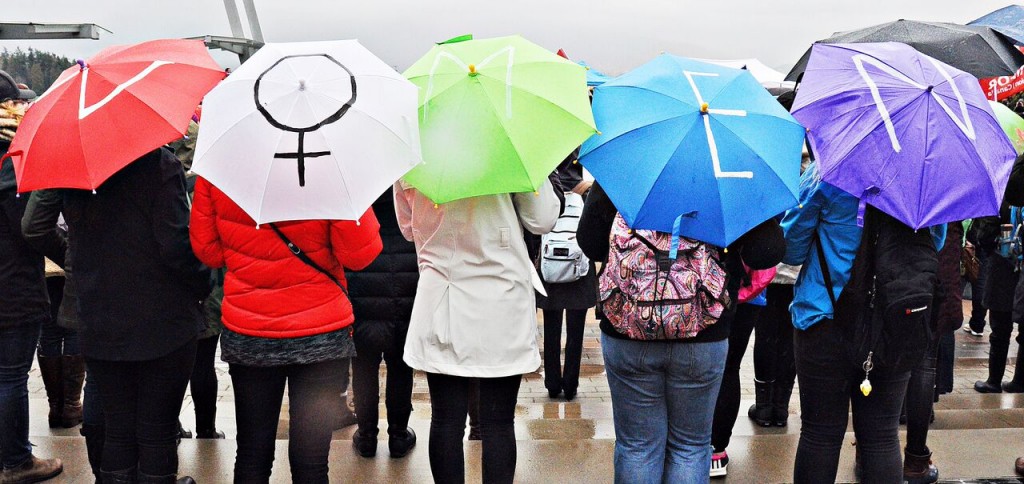
Second annual protest fills Jack Poole Plaza
By Katie Czenczek, Staff Writer
Thousands of people marched in solidarity through the streets of Vancouver for the second year in a row.
As a result of the United States federal election in 2016, people all over the world, including Vancouver, marched in protest against Donald Trump’s presidency. People flocked to the streets in order to protest the increased presence of white nationalism, misogyny, and xenophobia, which many people attribute to Trump’s political campaign and time in office.
However, the protest in Vancouver also discussed local and national issues that people within Canadian society face. Issues such as the Missing and Murdered Indigenous Women, Black Rights, Ten-Dollar-A-Day Daycare, Sex Worker’s Rights, and sexual violence against women were all topics speakers discussed as they came to the stage.
This year—though fewer attended than last year—people marched to discuss these topics even further.
Jack Poole Plaza was filled January 20 with people of various ages, races, ethnicities, genders, and classes who all united under the same message: “Women’s rights are human rights.” The definition used for “woman” included trans women, genderqueer, Two-Spirit, and non-binary people. Several speakers took to the stage, including 18-year-old Noor Fadel who was targeted in an alleged sexual assault believed to be religiously motivated in 2017.
Karla Thompson, a supporter of the march, explained why she took to the streets this year.
“I want a world where [women] are equal. Not better as some think we want, just treated like human beings,” she said. “This has all gone on far too long.”
Thompson elaborated, while in tears, discussing some of the things Canadian society needs to do to keep moving forward.
“We need to start educating kids [about rape culture] early, in middle schools or even elementary schools. I want better for our children and for my daughters,” she said.
Phoebe Patigdas, secretary-treasurer of the British Columbia Federation of Students, described how she felt about the march.
“It’s great that there were a lot of voices featured here from different movements, speaking in solidarity and fighting as one,” she said. “A lot of people [braved] the weather to come out here and I think they got what they were looking for.”
Patigdas also explained what this movement means to her.
“As a person of colour, [the Next Step March] means that I know what other people are experiencing and allows me to be at the front lines supporting them. Today [allowed] me to stand with my sisters and support them,” she said.
William Canero, a former Douglas College student and current UBC student, discussed why he thinks participating in marches is important to students.
“I’m a firm believer that online public discourse is a reproduction of on-the-ground activism,” he said. “Students that share these experiences as local influencers shift the Overton window and cascade in a way that changes what is acceptable to talk about in private and public settings.”
The Overton window is a political theory that describes the range of policies or issues that the public deems acceptable enough for a politician to successfully campaign on. Some may argue that Trump’s presidency has proven that a more conservative range of policies or issues have become more popular.


